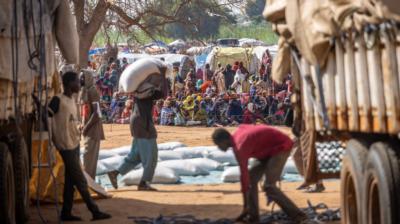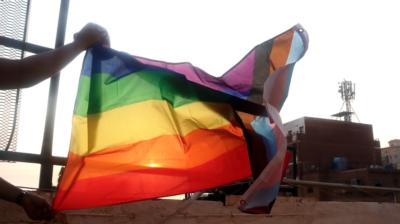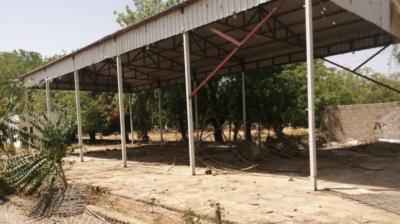Family law reform in Sudan: competing claims for gender justice between sharia and women’s human rights
How to cite this publication:
Samia El Nagar, Liv Tønnessen (2017). Family law reform in Sudan: competing claims for gender justice between sharia and women’s human rights. Bergen: Chr. Michelsen Institute (CMI Report R 2017:5)
This paper focuses on family law reform in Sudan-a country that has been in a state of perpetual conflict that stretches back long before its independence in 1956. The signing of the Comprehensive Peace Agreement (CPA) in 2005 between the ruling Islamist National Congress Party and the Sudan People's Liberation Movement ended Africa's longest running civil war. In the wake of the CPA, activists both inside and outside of the government have particularly been preoccupied with debating Muslim family law reform. Although the peace agreement was largely gender-blind, the interim national constitution of 2005 included clauses on gender equality and affirmative action (Itto 2006). Article 32 on the rights of women and children provides, "The State shall guarantee equal right of men and women to the enjoyment of all civil, political, social, cultural and economic rights, including the right to equal pay for equal work and other related benefits." This sparked processes of harmonizing Sudanese laws to the constitution. Activists inside and outside of the government have demanded law reform on a range of women's rights issues, such as the criminalization of female genital mutilation, the introduction of a women's quota to Sudan's legislative assemblies, reform of the criminal law's definition of rape, and equality-promoting changes to Sudan's family law.
The Personal Status Law for Muslims (also called the family law in this paper) was codified in 1991. It has emerged as a highly contested piece of legislation in post-CPA Sudan, to the point that it was a central topic in the 2010 election campaign and a disputed theme in constitutional reform debates in 2017. The 1991 law has been described as a backlash against women's rights activists, as it (among other things) legalizes child marriage, stipulates a wife's obedience to her husband, and denies wives the possibility of working outside of the home without their husbands' permission. It builds on the principle of qawama, which loosely translates as "male guardianship." In short, qawama projects a philosophy that a husband is obliged to support his family financially (nafaqa) in exchange for his wives' obedience.
Attempts to reform the Personal Status Law have met resistance. The law is perceived to be "untouchable because it is literally based on Sharia." Proposals for reforms to expand women's rights that "contradicts the explicit doctrine, codified tradition, or sacred discourse of the dominant religion or cultural group," are more likely to meet religious resistance (Htun and Weldon 2010, 210; see also Charrad 2001; Tripp et al. 2009; Htun and Weldon 2012). This includes efforts to expand women's rights, including through the contested area of family law, that is, the body of rules governing matters of marriage, divorce, custody, inheritance, and maintenance. Family law has proved to be a difficult area of law to reform in general, but this is particularly so where it is codified as religious law, as in Sudan. In such countries, family law reform is shaped by the relationship between the state on the one hand and religious organizations and institutions on the other. The strength of religious institutions and beliefs is inversely related to family law reform. The more powerful the country's religious organizations, the less willing and able the state is to violate the tenets of doctrine (Htun 2003).
Codification of Sudan's Personal Status Law of 1991 in the name of Sharia has led to many initiatives to reform the law within an Islamic frame in order to avoid backlash from conservative religious actors. In the post-CPA era, religious conservatives may be only a select few individuals, but they are well-organized and close to those in power within the government. They are active both inside and outside of Sudan's legislature and government institutions, and they dominate the state-controlled media. Many of these conservatives are associated with two religious institutions, the Islamic Fiqh Academy (Mujamaa Al Fiqh Al Islami), and the Association of Sudan Scholars (Haiaat Ulema Sudan), which were established in 1998 and 1999, respectively, and function directly under Sudan's president.
Sudan stands out as the only northern African country that has yet to reform its family law to take account of changing global standards for women. This despite the fact that reform has been on the agenda of the women's movement since the current law was first codified in 1991. Women's rights groups and the Ahfad University for Women took concrete initiatives for family law reform as soon as the early 1990s, when the Sudanese regime was at its most repressive. As of today, the only reform of family law that has taken place in Sudan's history was in 1969 under the rule of Jafaar Nimeiri, when his minister of justice, Babiker Awadalla, abolished the presence of police enforcement of "house obedience" (bayteta'a). This has been one of the few achievements within the area of family law, but it did not challenge the idea of a woman's obedience to her husband (Al-Nagar and Tønnessen 2017).
Since the coup d'etat in 1989, Sudan has portrayed itself as an Islamic state built on a conservative ideology where women are complementary rather than equal to men within the family setting. This is a particularly difficult environment in which to advocate for family law reform. Religious conservatives have also had strong political influence in the post-CPA era, particularly after Sudan's separation with South Sudan in 2011. In addition, there is a continuous competition within and between activists and reformists (within and without the government) for funding as well as praise, which makes broad mobilization for family law reform difficult. Finally, the increasingly authoritarian political environment has made it challenging for women to organize broadly.
This paper details the seemingly never-ending stream of initiatives for family law reform initiatives in post-CPA Sudan, none of which have culminated into de facto reform of the 1991 law. The analysis is based on our long-term engagement and work on women's rights and legal reform in Sudan. The article builds on extensive interviews (in English and Arabic) from 2006 until 2017 with reformists and conservatives within the government, as well as non-governmental activists involved in initiatives for family law reform. The interviewees were recruited through the network of contacts we have created through many years of engagement with Sudanese women. We have interviewed, socialized, and had formal and informal discussions with many of the people interviewed for this study on many occasions throughout the last 11 years.
Liv Tønnessen

Women's Human Rights and Law Reform in the Muslim World







